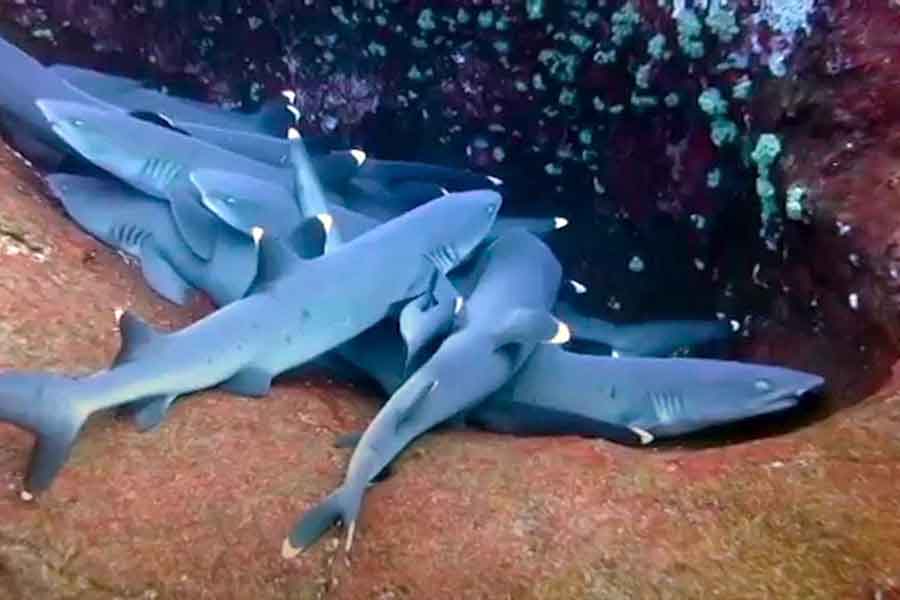
Sharks do not sleep. This statement is due to the fact that, unlike bony fish, sharks do not possess a swim bladder. This gas-filled organ allows fish to remain still when they stop swimming. Without it, if sharks were to stop moving, they would sink to the bottom and simply suffocate.
When a shark swims, water enters through its mouth, passes over the gills, where it extracts some of the dissolved oxygen, and exits through the gill slits. Sharks can also achieve some circulation by pumping water through rhythmic contractions of the mouth and gills, but this would not be sufficient to keep them alive. That is why sharks are condemned to perpetual movement.
This theory seemed to crumble in the 1970s when a Mexican diver and fisherman known as «Valvula» descended in search of fish near Isla Mujeres in Yucatán, Mexico. He encountered highly metabolically active oceanic sharks that appeared motionless and asleep inside the caves in the area. Since then, the sleeping sharks of Yucatán have been extensively studied.
Dr. Eugenie Clark, the world’s leading authority on sharks, has put forward an interesting theory that suggests the sharks are not actually sleeping and that the caves of Isla Mujeres are more of a «shark cleaning station» than a resting place. Sharks often have a large number of parasites, particularly in their throat and on their skin. Laboratory samples have shown that these caves have freshwater leaks, resulting in a decrease in the normal salinity of the water, causing the parasites to die.
While in the caves, the sharks are visited by cleaner organisms that eat the parasites on their skin, which begin to loosen due to the reduced salinity. The sharks themselves are not sleeping but rather highly sluggish, lowering their metabolism enough to survive for a short period of time with the minimal amount of air obtained through the pumping system. However, the final word has not yet been spoken, and research continues. Each door that opens requires more answers. The mystery of the sleeping sharks is still locked within the depths of the marine caves of Yucatán.
«You cannot defend what you do not love, and you cannot love what you do not know.»

